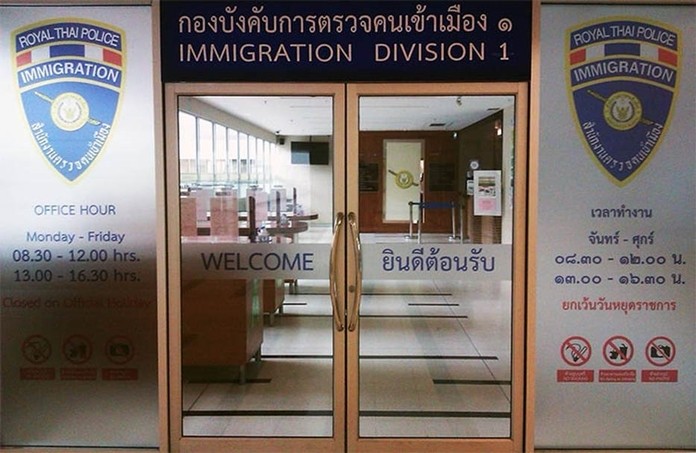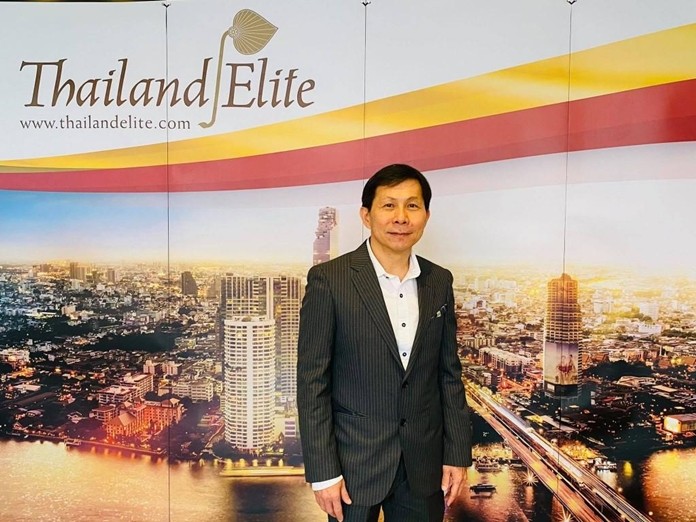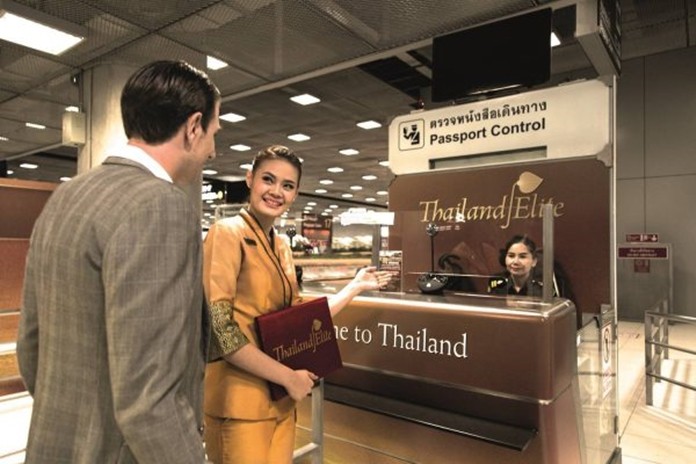
Applications for the increasingly popular Elite visa are now doubling every month, according to Thailand Privilege Card (TPC) president Somchai Soongswang. The total number has now reached 11,500 with China, Japan, South Korea, the UK and the US topping the charts. Somchai says that a major factor in the recent expansion has been Thailand’s success in combatting the pandemic, thus making it an attractive destination for wealthy expats. During the financial year September 2019 to September 2020, TPC took in income 1.6 billion baht, an increase of almost 27 percent on 2018.
Please Support Pattaya Mail
Introduced in 2003 but initially unsuccessful owing to poor marketing, Elite offers 10 different options for visas lasting from 5 to 20 years. The costs vary between 500,000 baht and 2.4 million according to the length of the pay-to-stay permit and the number of family members included in the deal. Perks include airport greetings staff and fast-track immigration, limousine services, free hospital check-ups and discounts in high-class leisure and sports complexes.

Since the onset of Covid-19, several moves by the Thai government have boosted the popularity of the Elite visa. It was mooted in August that foreigners holding an Elite card would be included in the categories able to apply for a Certificate of Entry from their local Thai embassy. Although there were initial bureaucratic delays, the Centre for Covid-19 Situation Administration (CCSA) cleared the backlog earlier this month. TPC president Somchai says that 70 percent of recent subscribers have been holders of other visas switching to Elite in order to hasten their arrival in the Land of Smiles.
This month it was announced that top-tier Elite visa holders – those holding visas for longer than 5 years – would be able to work without a work permit provided they separately invested one million US dollars in the country. Meanwhile a new Elite option is the Elite Maxima Health which combines a long-term visa with comprehensive medical care in the top hospitals. This could prove to be an attractive visa given the current emphasis on the need for medical insurance. Finally, the government is urging real estate developers to include an Elite membership in significant property purchases by foreigners.
These Elite developments, together with other moves such as broadening the scope of the four year Smart visa which does not require a work permit and an end to the insistence on Labour Office permits for short-term business people, mean that Thai authorities are currently more interested in attracting wealthy retirees and professionals to base here than in restarting mass tourism. Expect the Elite visa to play a growing role in Thailand’s future immigration policy. No doubt about that.

 |
 |
 |





